Amsterdam charms with its interlacing canals, gentle rhythm, and unique character, making it a truly special stop. With the help of local guides in Amsterdam, set out to discover a city born on the Amstel River, where a simple dam built centuries ago gave the capital its name.
Take time to explore the “star” spots: the green calm of Vondelpark; the lush diversity of the Hortus Botanicus botanical garden; or the canvases of the Van Gogh Museum, an intimate dive into the artist’s world.
And if you feel like stepping out of the city, head to the village of Zaanse Schans. In less than an hour, you’ll find yourself in a postcard landscape, among historic windmills and traditional Dutch houses.
```
Top 5 Guided Tours
Places to Visit
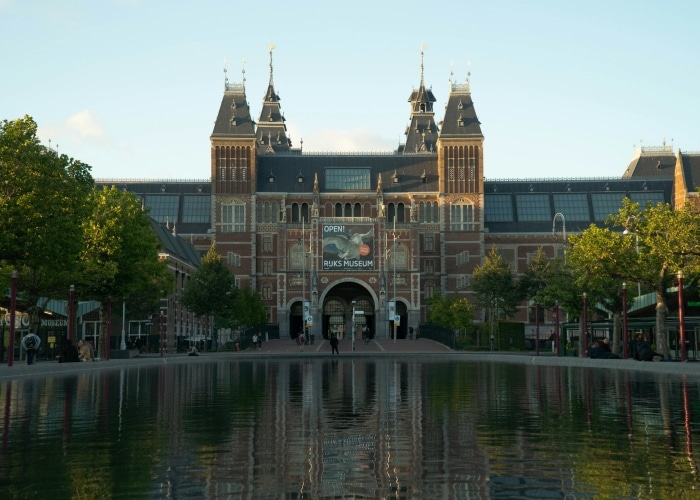
The Rijksmuseum is without doubt one of the world’s most prestigious art museums. Located between Stadhouderskade Avenue and the Museumplein, the complex showcases masterpieces by great Dutch artists such as Rembrandt, Vermeer, and Van Gogh.
More than 8,000 works are displayed across 1.5 km of galleries. Start on the second floor in the Gallery of Honour, usually the most popular, where some of the most stunning paintings are exhibited, including the famous “Night Watch.”
Among other highlights worth mentioning are the dollhouses, the Asian Pavilion, and the surrounding gardens, with their greenhouse of heirloom vegetables, water maze, and sculptures. Food lovers can also indulge at the Michelin-starred restaurant Rijks: exceptional cuisine in an exceptional setting guaranteed!
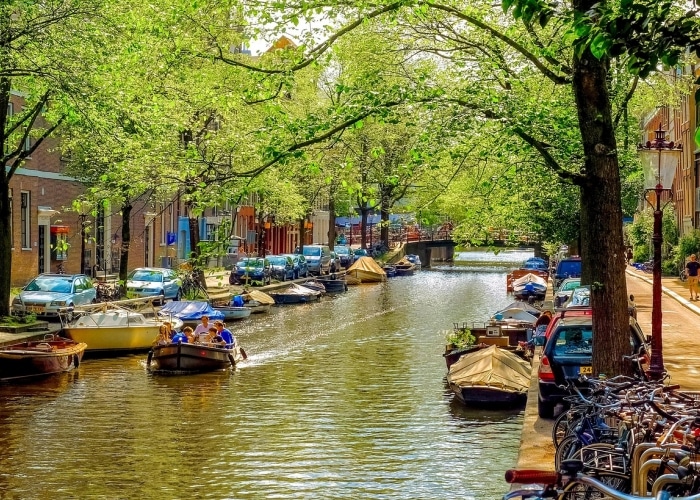
In the streets of Amsterdam, the Jordaan district keeps a village spirit—brick facades, hidden hofjes, water sliding along the quays. The neighborhood is made for walking, with small shops, workshops, and cafés tucked at the corners of bridges. You wander without a plan, guided by the canals and the soft hum of bicycles.
The bells of the Westerkerk mark the hours, a sound rising above the rooftops. Nearby, the Anne Frank House compels you to pause, to see these narrow homes differently. You step out in silence, then drift back into the flow of the streets.
On market days, Noordermarkt spreads out its stalls—cheese, flowers, second-hand clothes, conversations rolling easily. On Lindengracht, the smell of coffee mingles with baked apples, you snack standing up, sit on a step, nothing rushed. The neighborhood settles back into a simple, almost domestic rhythm.
Just steps away, the 9 Straatjes connect the main canals with curated shopfronts, bookstores, vintage stores where you browse without haste. By evening, windows glow and the water reflects slow ripples. From Jordaan, what lingers is a clear, quiet feeling you carry with you.
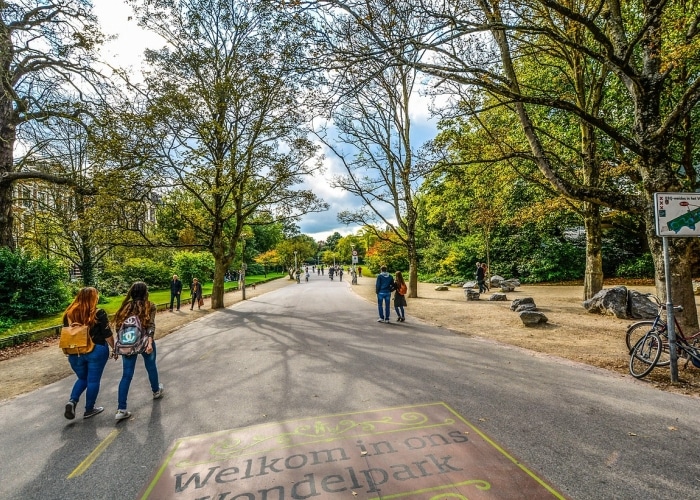
It’s Amsterdam’s most famous park, Vondelpark. Open since 1865. Its name? That of the poet Joost van den Vondel. A statue, set there, still watches the walkers go by.
The gardens, part wild, part designed, draw inspiration from English landscapes. Wide lawns, small crossing paths, woods that hide the edges of the lake. Nothing feels fixed. The whole place keeps a sense of freedom, as if the city had half-forgotten it.
With its 45 hectares, you can walk, run, or pause. In summer, a stage comes alive. Music, theater, screenings. It smells of the 60s. And sometimes, it feels as if they never left.
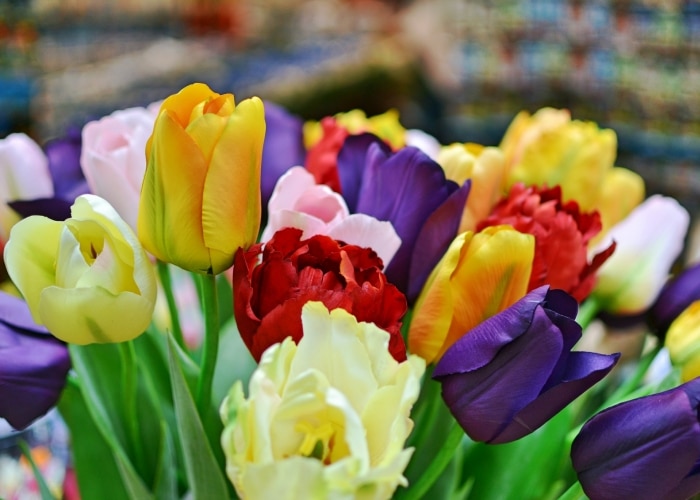
The Bloemenmarkt is the floating market along the Singel Canal, just steps from Rembrandtplein. Shops set on barges, barely tied to the banks. They’ve been here since 1862.
People come for the colors, the scents, and above all, the tulips—in bulbs, in seeds, or already in bloom. It’s the country’s flower, brought from Central Asia centuries ago, turned into an icon almost without notice.
Around it, cafés and restaurants, and stalls filled with souvenirs. Some kitschy, others genuine. Yes, it’s a tourist spot, but not quite like the others.
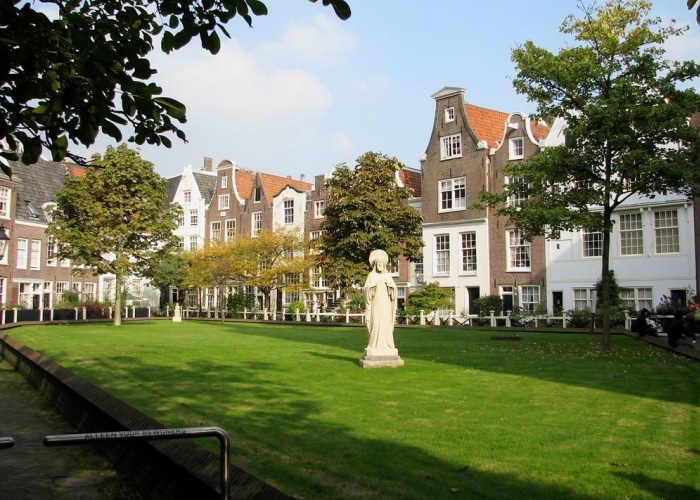
Just a few steps from Kalverstraat, one of the city’s busiest shopping streets, you’ll find a little calm and serenity in the landscaped courtyard of the Beguinage, the “Begijnhof.”
Its construction dates back to the Middle Ages, around 1350. This was home to the Beguines, devout Catholic women, single or widowed. Originally, the square was surrounded by water and could only be reached by a bridge. Successive fires destroyed most of the original wooden buildings, and today only one remains—the famous Het Houten Huys at number 34.
This haven of peace is made up of forty beautiful houses arranged around a lawn and a red-brick chapel.
Worth noting: nearby is the small Spui Square, where every Friday an exhibition of old books takes place, and every Sunday, from spring to late autumn, a small fair called Artplein-Spui is held, bringing together around thirty contemporary artists.